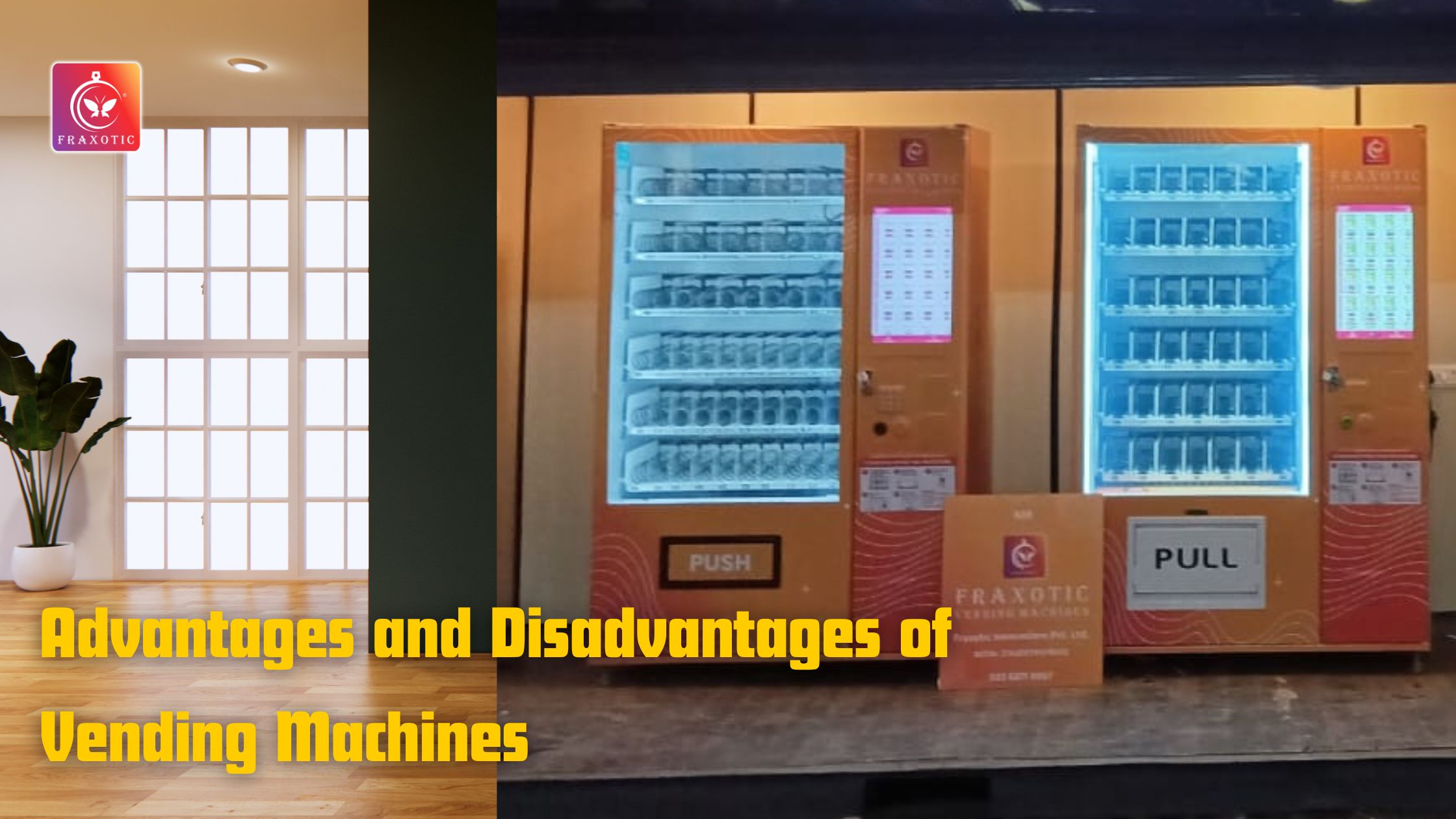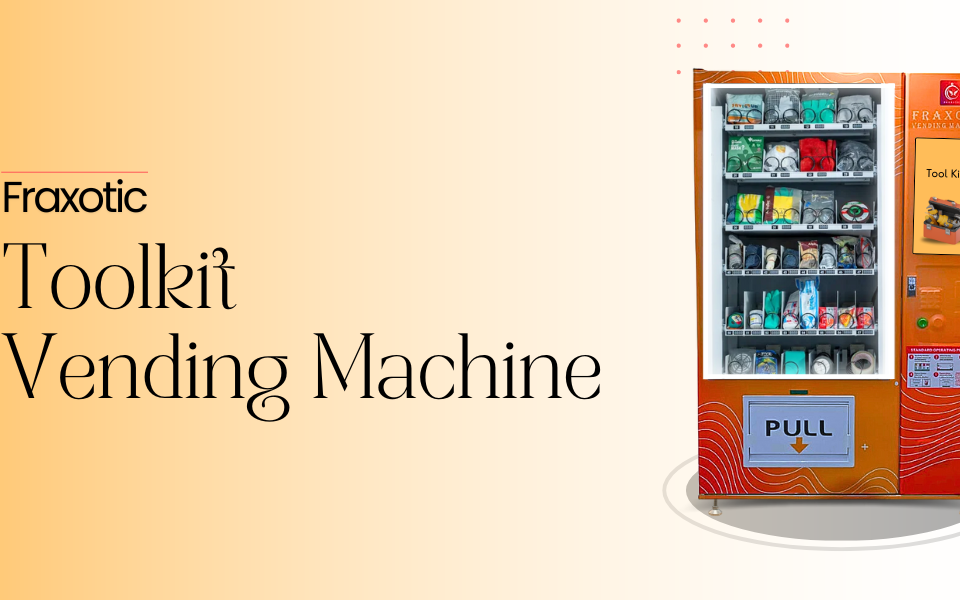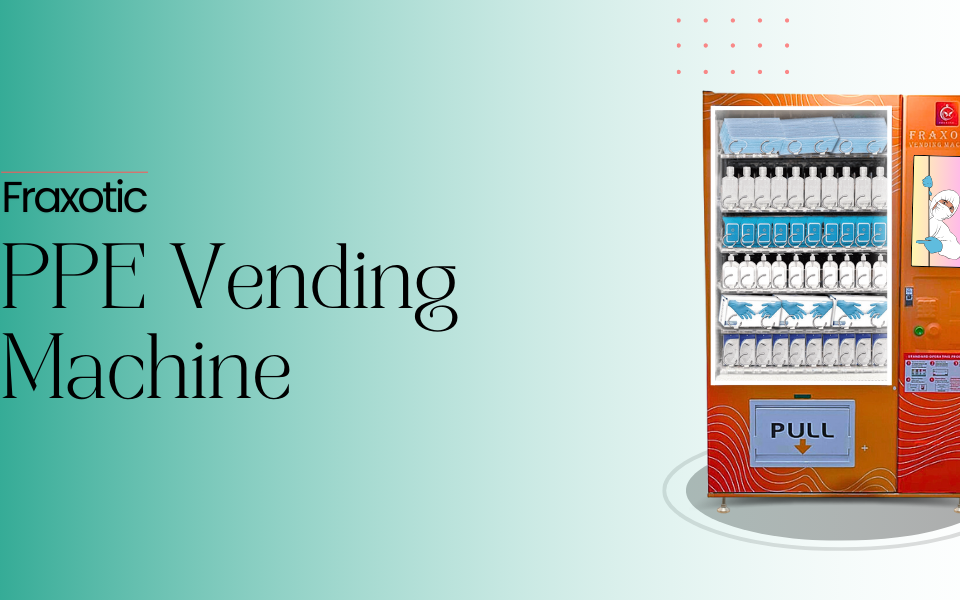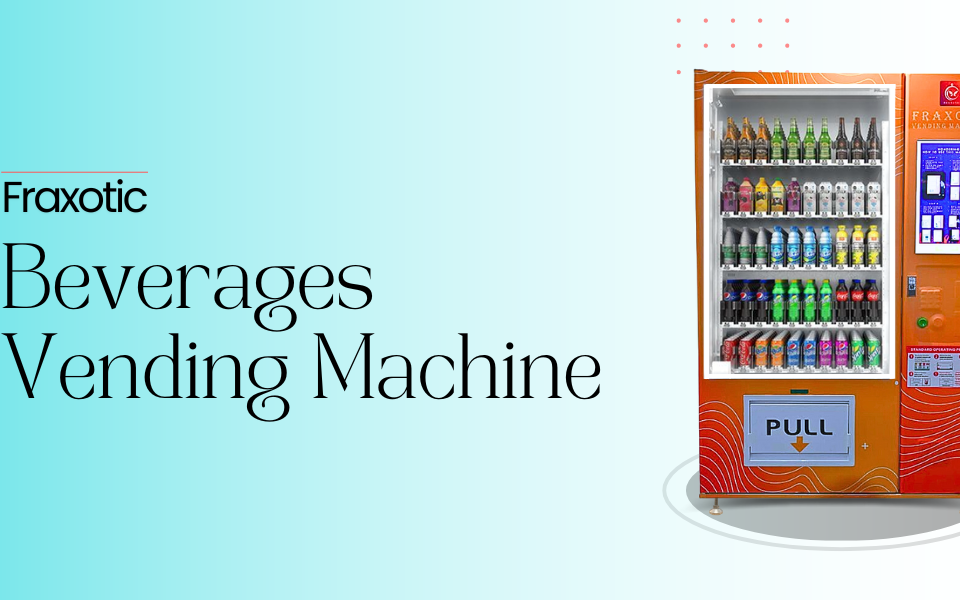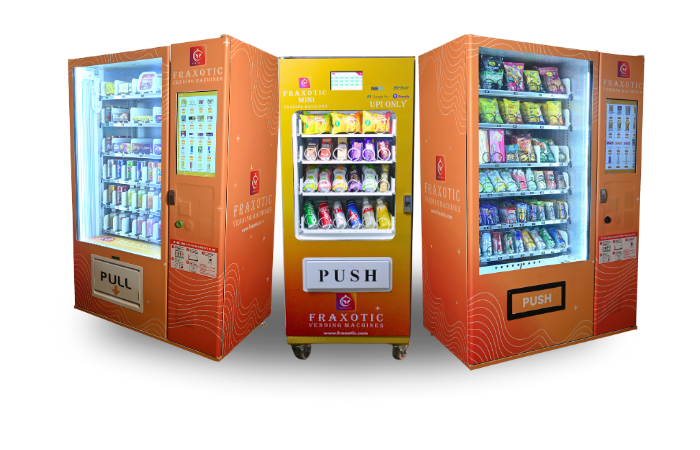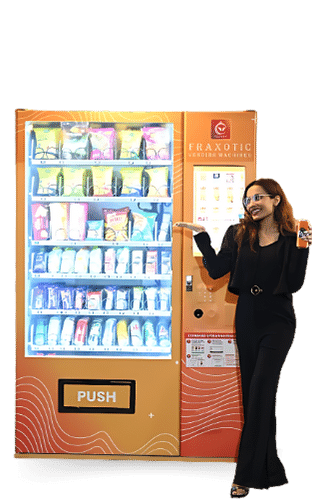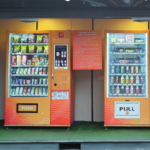
Fraxotic Food ATM | Vending Machine Experience Center
November 27, 2023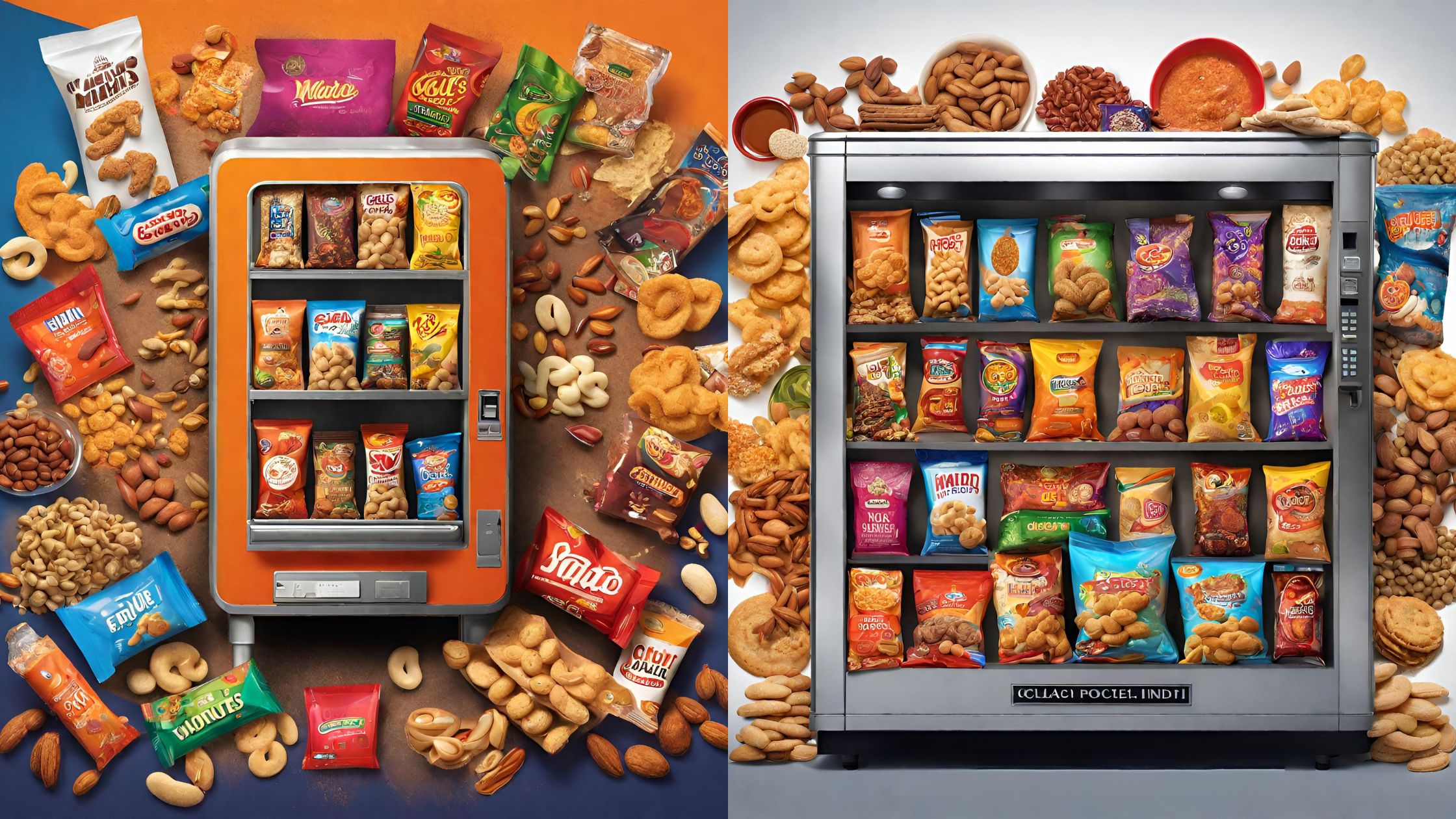
Top 10 Best-Selling Vending Machine Snacks of All Time!
December 3, 2023In today’s fast-paced world, where convenience and efficiency are highly valued, vending machines have become an integral part of our daily lives. These automated devices provide quick access to a wide range of products, making them a popular choice for consumers and entrepreneurs alike. However, like any business venture, there are both advantages and disadvantages associated with vending machines.
In this article, we will explore the various benefits and drawbacks of these machines, providing a comprehensive analysis of their impact on businesses and consumers.
Advantages of Vending Machines
1. Convenience and Accessibility
Vending machines offer unparalleled convenience and accessibility to consumers. These machines can be found in various locations, such as supermarkets, malls, offices, and public spaces, ensuring that individuals can easily access products whenever they need them. Whether it’s a quick snack, a refreshing beverage, or even personal care items, vending machines provide a one-stop solution for immediate needs.
2. Diversification of Products
One of the key advantages of vending machines is their ability to offer a wide range of products. From cold drinks and snacks to electronics and toiletries, these machines can cater to diverse consumer preferences. According to a survey, the average vending machine can provide more than 12 different items at a time, allowing consumers to choose from a variety of options.
3. Time-Saving and Efficiency
In our fast-paced society, time is of the essence. Vending machines excel in saving time for both consumers and businesses. With no need for human intervention, customers can make purchases quickly and efficiently. Additionally, vending machines eliminate the need for cash transactions, as they accept various payment methods, including cashless options like debit/credit cards, mobile payments, and digital wallets. This further streamlines the purchasing process, making it more convenient for consumers.
4. Minimal Operational Effort
Operating a vending machine requires minimal effort and resources. Once the machine is installed, it can be easily managed remotely, reducing the need for on-site personnel. With the help of innovative vending machine management software, inventory tracking, sales analysis, and machine maintenance can be efficiently handled from a centralized location. This not only saves time and labor costs but also ensures smooth operations and customer satisfaction.
5. Cost-Effectiveness and Profitability
Vending machines offer a cost-effective business model with long-term profitability potential. Compared to traditional brick-and-mortar stores, setting up a vending machine requires significantly lower initial investment. The absence of advertising and marketing expenses further contributes to cost-effectiveness. Moreover, vending machines can generate higher profit margins, especially when directly purchasing products from manufacturers and leveraging advanced vending machine management platforms. By optimizing inventory control, operators can maximize profitability and capitalize on market trends.
6. Increased Customer Satisfaction and Engagement
By providing a convenient and accessible shopping experience, vending machines contribute to increased customer satisfaction. These machines offer 24/7 availability, ensuring that customers can fulfill their needs anytime, anywhere. Furthermore, vending machines can serve as a platform for brand promotion and marketing. By utilizing the exterior surfaces of the machines for advertisements, businesses can engage with customers and create brand awareness effortlessly.
Disadvantages of Vending Machines
1. Limited Scope for Negotiation
One of the primary disadvantages of vending machines is the absence of negotiation. Unlike traditional retail stores, vending machines do not allow for bargaining or price adjustments. This lack of flexibility can be unfavorable for both customers and owners. Retail stores enable customers to negotiate prices, while the store owner can offer discounts as a means of promoting sales. With vending machines, fixed pricing is the norm, limiting the scope for negotiation.
2. Vulnerability to Fraud and Vandalism
While vending machines are designed to operate autonomously, they are not immune to fraudulent activities or vandalism. Some individuals may attempt to hack into the system to obtain products without payment, leading to financial losses for the owner. Additionally, vending machines placed in public spaces can be targets for vandalism by unruly groups or jealous competitors. The cost of repairing or replacing damaged machines can be substantial, impacting the profitability of the business.
3. High Initial Investment and Fixed Costs
While vending machines offer cost-effectiveness in the long run, the initial investment can be significant. Depending on the size, technology, and customization requirements, the price of a vending machine can range from a few thousand to several lakhs. Setting up a vending machine business also incurs fixed costs such as maintenance, repair, inventory management, and location rental fees. Proper inventory control is crucial to avoid losses resulting from technical errors or overstocking.
4. Dependence on Electricity and Internet Connectivity
For uninterrupted operation, vending machines require a continuous supply of electricity and internet connectivity. These machines must be operational 24/7 to serve customers efficiently. In the event of power outages or internet disruptions, the functionality of vending machines can be compromised, leading to potential sales losses and customer dissatisfaction.
5. Limited Product Quantity and Variety
While vending machines offer diversification of products, there are limitations to the quantity and variety that can be offered. Vending machines have limited storage capacity, and certain products may require specific temperature or storage conditions, further reducing the range of items that can be sold. Additionally, for bulk purchases or specialized items, vending machines may not be the most suitable option.
Conclusion
Vending machines have revolutionized the retail industry, providing unparalleled convenience and accessibility to consumers. The advantages of vending machines, such as convenience, diversification of products, time-saving, and cost-effectiveness, make them an attractive business venture. However, it is important to consider the disadvantages, including limited negotiation scope, vulnerability to fraud and vandalism, high initial investment, dependence on electricity and internet connectivity, and limitations in product quantity and variety. By understanding the pros and cons, entrepreneurs can make informed decisions and leverage the benefits of vending machines while mitigating potential challenges. As technology advances and consumer preferences evolve, vending machines continue to evolve, offering innovative solutions for businesses and enhanced experiences for consumers.
Frequently Asked Questions (FAQs) about Vending Machines
Vending machines offer unparalleled convenience, accessibility, and time-saving benefits. They provide a diverse range of products, require minimal operational effort, and are cost-effective with long-term profitability potential.
Vending machines are commonly located in supermarkets, malls, offices, and public spaces. Their versatility allows placement in various high-traffic areas for easy access.
Vending machines require lower initial investment compared to traditional stores, and their operational costs are minimized with remote management capabilities. This, coupled with the potential for higher profit margins, makes them a cost-effective business model.
Yes, modern vending machines typically accept various payment methods, including cashless options such as debit/credit cards, mobile payments, and digital wallets, providing flexibility for consumers.
Vending machines ensure 24/7 availability, allowing customers to fulfill their needs anytime, anywhere. They also serve as a platform for brand promotion through advertisements, contributing to increased customer engagement.
Yes, vending machines have limited storage capacity, and certain products may require specific storage conditions. This can impact the range of items offered, especially for bulk purchases or specialized items.
No, vending machines operate with fixed pricing, and negotiation is not possible. Unlike traditional retail stores, vending machines do not allow for bargaining or price adjustments.
Vending machines are vulnerable to fraud, vandalism, and dependence on electricity and internet connectivity. The initial investment and fixed costs can be high, and there may be limitations in negotiating prices and product variety.
Businesses can implement security measures to prevent fraud and vandalism, invest in reliable power sources, and carefully manage inventory to avoid losses due to technical errors or overstocking.
As technology advances, vending machines continue to evolve, offering innovative solutions for businesses and enhanced experiences for consumers. The integration of new technologies and the adaptation to changing consumer preferences drive the future of vending machine technology.

